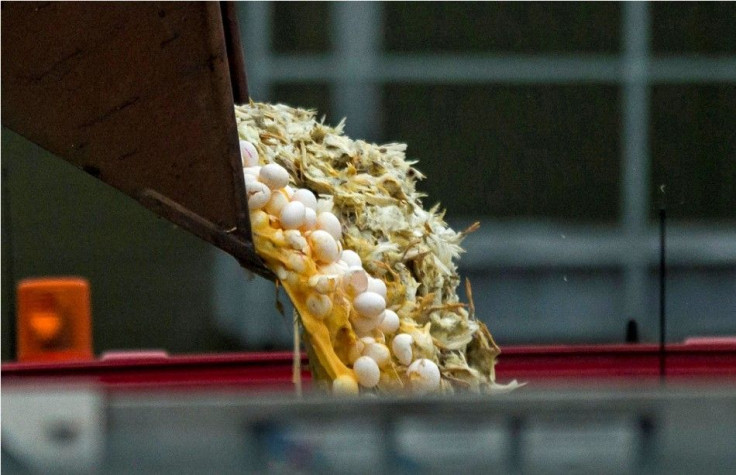Canada Poultry Farms Infected With Bird Flu, Christmas Market Likely To Be Affected

Bird flu was found in at least two poultry farms in Canada. The Canadian Food Inspection Agency confirmed the flu outbreak on Tuesday, Dec. 2.
Two poultry farms in British Columbia were placed under quarantine. Half of the birds in the Abbotsford turkey farm were already killed from the avian flu, which means that more than 5,000 birds died at the farm where there were around 11,000 birds earlier. B.C. Chief Veterinary Officer Jane Pritchard confirmed the numbers. A Chilliwack farm, which is around eight kilometres from this farm, saw around 1,000 die of the flu. The total number of birds at the farm was 7,000. Pritchard said that the remaining birds at the farms were going to be euthanized with carbon dioxide gas. CTV News reported that the birds would then be composted in the barn to prevent the disease from going airborne or escaping the building. The CFIA is going to oversee the disinfection process in the vehicles, barns and tools when the infected birds get disposed of.
According to Chief Veterinary Officer Harpreet Kochhar, it was too early to find out the subtype of the virus but the virus strain was confirmed to be H5. No news of any human getting infected by the virus in Canada is reported yet. A Canadian was killed by the H5N1 virus in January after he had visited China. Kochhar, on the other hand, said that it would be rare for a human to get transmitted from another human. He said that humans would not even get infected if they ate an infected bird which was properly prepared. Kochhar also said that further tests would reveal more information about the virus. He also said that "enhanced biosecurity practices" would be ensured in the meantime. Kochhar shared all the available information regarding the disease with the chief veterinary officer in the United States as a part of the standard protocol.
According to Pritchard, the local Christmas market may be affected by the flu outbreak. "The turkeys were 83 days of age, so they would have been targeted for the Christmas market," she said.
Contact the writer: s.mukhopadhyay@ibtimes.com.au




















